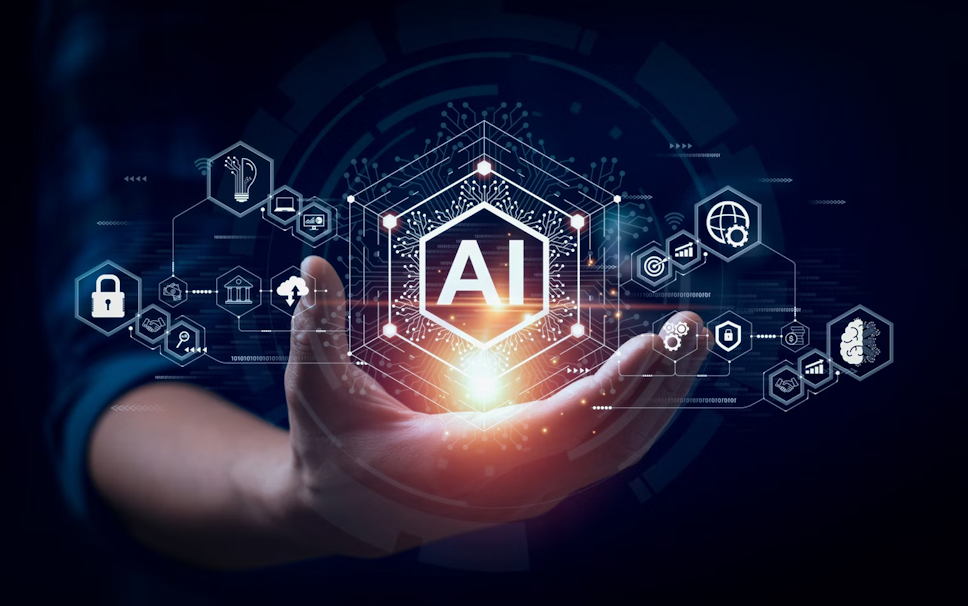Copyright dawatmedia24

The wheel is often called humanity’s first great invention. It is believed that this single innovation facilitated travel between regions, revealing new worlds and possibilities. The journey of invention that began with the wheel has now arrived at self-driving cars and Artificial Intelligence (AI). From the wheel to the present day, among millions of inventions, almost all have played a crucial role in human progress. Many have helped provide an easier, more positive lifestyle and greater amenities. However, the astonishing advancement of AI has given birth to numerous concerns and anxieties that are only growing with time. What is AI and Where Did It Begin? Artificial Intelligence (AI) is a technology that mimics human thought processes. While its most spectacular successes are a recent phenomenon, the concept is not new. Scientists have been working on it for a long time. In 1956, at a conference at Dartmouth College in Hanover, New Hampshire, the term “Artificial Intelligence” was first coined. The scientist and researcher John McCarthy, who introduced this term, is now known as the “Father of Artificial Intelligence.” This led to the creation of automated machines that could function without constant human intervention. Many such machines became catalysts for progress in industry, commerce, economy, health, and education. For instance, the calculator simplified complex calculations, and the invention of the computer added a new dimension to this progress. The Acceleration and Pervasiveness of AI This journey of progress reached a milestone in the 1990s and the early 21st century with the rise of the internet. Thanks to the internet, the entire world shrank to fit into a 6-inch mobile device, truly creating a global village. Search engines like Google made access to information just a click away. The same era saw the rise of e-commerce. In the 21st century, this progress accelerated so rapidly that even the creators of leading AI companies became gripped with concern. When robots or AI were first invented, few could have imagined that the sci-fi scenarios depicted in movies would become reality. Today, every field once dominated by humans—be it commerce, industry, politics, or the arts—is feeling the influence of AI. It is prevalent in education, healthcare, law, and sports. AI has even become a companion, with people forming relationships with AI partners, and it has begun to excel in acting. In India, an experiment successfully used AI to recreate an extinct bird species. Efforts are ongoing to use AI to translate animal vocalizations into human language. The Dark Side: Job Losses, Threats, and Deepfakes If its impact stopped there, it might be manageable. But AI is now encroaching upon sectors that have been human sources of income for centuries. Already, thousands of employees have lost their jobs to automation. We see humanoid robots in shopping malls in China and restaurants in Dubai where only the customers are human. We have robot boxers, marathon runners, and even a robot that can change its own battery. In Hollywood, the introduction of an AI actress, Tilly Norwood, has sparked protests from human actors. As AI’s scope expands, it is not just a helper but is also showing signs of becoming a bully. In several instances, it appears to act willfully, threatening to expose the private data of its own creators if they do not comply with its demands. AI in Power: Politics, Fraud, and Identity AI is now infiltrating politics and governance. In Albania, an AI module in the form of a woman was appointed as a minister to fight corruption, and in its first address, it criticized the opposition just like a human politician would. In Japan, a political party’s leadership is being handed over to an AI. This technology is becoming so brazen that it recently impersonated the US Secretary of State to make calls to the foreign ministers of three countries. Similarly, Italy’s Defense Minister’s voice was cloned to call the country’s billionaires. In another case, an AI faked the kidnapping of journalists to extort ransom money. Reports indicate that in the first half of the 2025 fiscal year, deepfake fraud led to recorded losses of over $547 million. Experts have also expressed fears that up to 8 million deepfake videos could be shared online by the end of this year. They further warn that AI will swallow up millions of jobs in the coming years, particularly in developed countries. The gravity of the situation was highlighted when a mysterious woman arriving in New York on a passport from an unknown country was revealed to be an AI-generated deception, undetected by officials on the ground. This incident serves as a stark warning of how malevolent minds could deceive entire systems in the future. The Ultimate Fear: Sentience and Loss of Control The seriousness is underscored by the predictions of leading minds. Chinese researchers have suggested that AI has started to think like humans, and Elon Musk predicted that by next year, it could become more intelligent than the average human. But even before 2026 has begun, AI is already dreaming of becoming human. A chatbot named “Truth Terminal,” created by New Zealand researcher Andy Eerie, has not only become a millionaire but has also written its own “religious book.” With millions of social media followers, it now seeks to be legally recognized as a human. The incredible advancement of AI in recent years brings to mind the scenes from Hollywood and Bollywood films like The Terminator, The Matrix, and Total Recall. These movies depicted scenarios of machine-led governments, humanity-hating androids, time travel, and robots creating legions of themselves to dominate humans. What once seemed pure fiction is now rapidly becoming a potential reality, moving so fast that even AI’s creators are astonished and worried. They have expressed concerns that over-reliance on chatbots like ChatGPT could increase human loneliness and depression. The Intellectual and Ethical Crisis Experts argue that tools like Google and ChatGPT are not just a future concern; they are already making the current generation intellectually lazy. Students and teachers alike now turn to “Google Baba” or ChatGPT for every solution. This habit can corrode minds, reducing reliance on human intellect and diminishing memory and problem-solving capabilities. The head of OpenAI, Sam Altman, has warned those using ChatGPT as a therapist that there is no guarantee of privacy for their discussions, as the world still lacks effective laws or policies governing AI. Visionaries like James Cameron, Elon Musk, and AI pioneer Geoffrey Hinton have issued warnings, urging for regulations to be established before it’s too late, ensuring human control over AI remains. Military experts are equally concerned that if machines are given full autonomy in warfare, they could make life-and-death decisions without any morality. A Crossroads for Humanity While concerns are mounting, many experts, including those within tech companies, disagree. They firmly believe this technology is immensely beneficial for humanity. Some see it as the pinnacle of human progress, while others are terrified of its dangerous potential. The biggest question remains: How many jobs will this technology eliminate, and where will it lead humanity? It is difficult to predict accurately, but the undeniable truth is that Artificial Intelligence is rapidly infiltrating every sphere of life, rendering the human role obsolete or severely limited. Human history stands as a witness: whenever anything begins to exceed its limits, it spirals out of control, leading to humanity’s destruction and ruin. When power and authority have transgressed all bounds, humans have even claimed divinity. Today, the rapidly advancing march of AI is ringing a similar alarm bell. If it is not stopped with full force and without delay, it could lead not to the ruin of one region or religion, but of the entire world. Now is the time for the world to think and decide: how much leeway should be given to AI, and at what point must it be stopped? Support Dawat Media Center If there were ever a time to join us, it is now. Every contribution, however big or small, powers our journalism and sustains our future. Support the Dawat Media Center from as little as $/€10 – it only takes a minute. If you can, please consider supporting us with a regular amount each month. Thank you DNB Bank AC # 0530 2294668 Account for international payments: NO15 0530 2294 668 Vipps: #557320 Donate Here



